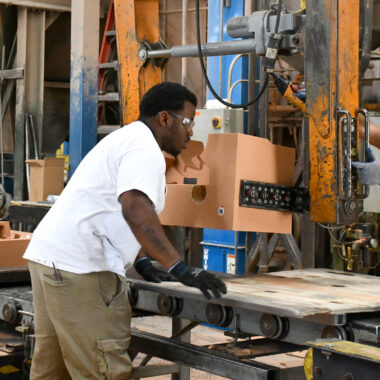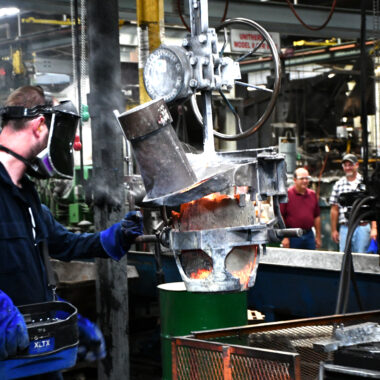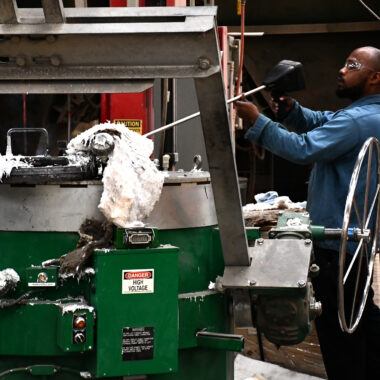Getting Quality in Aluminum Spreading: Important Advice
In the world of light weight aluminum accuracy, high quality and casting are extremely important. From very carefully choosing the right products to refining pouring strategies and guaranteeing precise completing touches, attaining excellence in light weight aluminum spreading requires a blend of proficiency and focus to detail.

Materials Selection
Selecting the ideal materials is vital in making certain the success and top quality of your light weight aluminum casting jobs. The selection of products significantly impacts the last residential properties of the casted items, consisting of toughness, durability, and overall quality. When picking products for aluminum casting, it is essential to take into consideration variables such as the kind of light weight aluminum alloy, the preferred mechanical homes, and the casting method being made use of.
Light weight aluminum alloys are frequently utilized in casting because of their lightweight nature and excellent mechanical properties. The option of the details alloy relies on the application demands, with choices varying from high-strength alloys ideal for architectural elements to corrosion-resistant alloys for marine settings. Comprehending the characteristics of various light weight aluminum alloys is vital for choosing one of the most suitable one for your project.
Moreover, the spreading method used, whether it be sand casting, die spreading, or investment spreading, likewise affects material option. Each casting approach has its own demands in terms of material fluidness, thermal conductivity, and mold compatibility. By meticulously taking into consideration these elements, you can make certain that the materials selected are tailored to satisfy the specific requirements of your light weight aluminum casting project.
Mold Prep Work
In the realm of aluminum spreading, the meticulous prep work of molds stands as an essential precursor to the real spreading process. Mold prep work involves a number of necessary actions to make certain the high quality and precision of the last cast item. Firstly, it is critical to clean the mold thoroughly to eliminate any kind of dust, residue, or previous casting residues that could compromise the new actors (casting aluminum illinois). This cleansing procedure aids preserve the integrity of the mold and avoids flaws in the last product.
Following, applying a suitable mold covering is important to assist in the launch of the cast aluminum and improve the surface finish of the component. The kind of finish made use of will depend on factors such as the intricacy of the mold and mildew, the preferred surface area coating, and the spreading material. Additionally, correct venting and gating systems should be incorporated right into the mold design to permit for the smooth circulation of liquified light weight aluminum and stop the development of air pockets or problems in the cast part.
Melting and Putting Methods
To achieve successful light weight aluminum spreading, mastering effective melting and putting methods is extremely important for making sure premium and specific results. The melting process is a critical action in light weight aluminum spreading, where the metal is heated to its fluid state.
Once the aluminum gets to the wanted molten state, appropriate pouring methods need to be employed to transfer the steel right into the molds. The speed and consistency of the pour are important consider achieving uniform dental filling of the mold and mildew cavity and lowering the risk of problems like air entrapment or incomplete casting. Gravity putting, low-pressure spreading, or centrifugal casting methods can be used based on the specific demands of the job.
Air Conditioning and Solidification Control
Attaining precise control over the cooling and solidification procedure is critical in light weight aluminum spreading to keep the integrity and high quality of the final casted products. Proper cooling and solidification control aid avoid defects such as porosity, warm tears, and contraction that can compromise the mechanical residential or commercial properties of the casted light weight aluminum parts.
One essential element of air conditioning and solidification control this hyperlink is the style and placement of chills. Chills are metal things purposefully positioned in the mold and mildew to take in warmth rapidly from specific locations of the spreading, promoting uniform solidification and decreasing the probability of problems. Furthermore, controlling the air conditioning rate by readjusting the mold and mildew's product, style, and the application of insulating coverings can influence the microstructure and mechanical residential or commercial properties of the final spreading.
Moreover, surveillance and managing the air conditioning process via using thermocouples and computer simulations enable real-time changes to enhance cooling prices and solidification patterns. By implementing these techniques, shops can enhance the top quality and uniformity of their light weight aluminum castings, meeting the rigorous requirements of numerous markets.
Finishing and High Quality Inspection
Effectively carried out finishing and high quality inspection processes are indispensable in making sure the total integrity and integrity of aluminum spreadings, check my site building on the precise air conditioning and solidification control techniques utilized throughout the casting procedure. Finishing strategies such as grinding, sanding, and brightening aid get rid of excess material, smooth rough surface areas, and enhance the castings' last anchor appearance. These processes not just boost the aesthetic charm yet likewise make certain dimensional accuracy and performance.

Final Thought
Finally, accomplishing quality in light weight aluminum spreading needs cautious consideration of materials selection, precise mold and mildew preparation, exact melting and pouring strategies, efficient air conditioning and solidification control, as well as complete finishing and high quality assessment processes. By complying with these crucial suggestions and techniques, manufacturers can guarantee the production of high-grade aluminum castings that meet sector standards and client expectations.
When selecting products for light weight aluminum spreading, it is crucial to think about aspects such as the kind of light weight aluminum alloy, the wanted mechanical homes, and the spreading technique being made use of.
Moreover, the spreading approach used, whether it be sand spreading, pass away spreading, or investment casting, likewise influences material choice.In the realm of light weight aluminum spreading, the thorough prep work of mold and mildews stands as a crucial precursor to the real casting process. Gravity pouring, low-pressure casting, or centrifugal casting methods can be utilized based on the particular requirements of the project.
